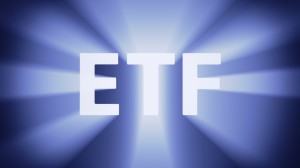 The Financial Industry Regulatory Authority (FINRA) ordered Wells Fargo Clearing Services, LLC and Wells Fargo Advisors Financial Network, LLC (Wells Fargo) to pay more than $3.4 million in restitution to customers for unsuitable recommendations of volatility-linked exchange-traded products (ETPs) and supervisory failures concerning the sales of these products. FINRA found that between July 2010, and May 2012 Wells Fargo brokers recommended volatility-linked ETPs without fully understanding their risks and features.
The Financial Industry Regulatory Authority (FINRA) ordered Wells Fargo Clearing Services, LLC and Wells Fargo Advisors Financial Network, LLC (Wells Fargo) to pay more than $3.4 million in restitution to customers for unsuitable recommendations of volatility-linked exchange-traded products (ETPs) and supervisory failures concerning the sales of these products. FINRA found that between July 2010, and May 2012 Wells Fargo brokers recommended volatility-linked ETPs without fully understanding their risks and features.
These complex products are extremely difficult to understand and are easy to improperly sell. In recent years many exotic ETN have been created that either use leverage or futures exposure to replicate an index. However, many of these investments are appropriate only for institutional investors and short term trading for various reasons.
The most popular volatility-linked ETP is the Chicago Board Options Exchange Volatility Index (VIX). The VIX tends to be negatively correlated with broader financial indexes and rises in period of market distress. However, it is not possible to directly invest in the VIX and instead investments are made in VIX derivatives such as futures or options. The three main Volatility ETPs offered to retail investors are VXX, VXZ, and VIXY. Volatility ETPs attempt to provide exposure to the VIX through VIX futures contracts but these Volatility ETPs do not track the VIX Accordingly, VIX investments held for long periods of time will almost certainly lose value.
 Securities Lawyers Blog
Securities Lawyers Blog



